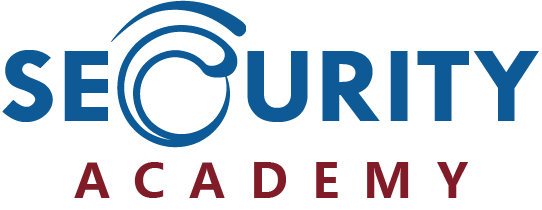CCSP® Preparation Course
Intensive CCSP® training with expert trainers and the Official ISC2 Guide to the CCSP® CBK
EnrollBook as in-company
What will you learn?
- 9Get a deep understanding of the six CCSP domains and their interrelationships;
- 9Develop practical skills in cloud security architecture, design, operations and service orchestration;
- 9Prepare for the ISC2 CCSP® certification exam with a full practice exam and practical insights from the industry.
Information
- 5 course days
- 20 hours of self-study
- R1 CPE credit per study hour
CCSP® Preparation Course – Intensive CCSP training with expert trainers
Our CCSP Preparation Course will help you master the skills you need to pass the ISC2 Certified Cloud Security Professional (CCSP) certification exam and earn your CCSP qualification. In this intensive CCSP training, you will cover each of the six CCSP domains with an expert trainer who has extensive experience in the security industry. In addition to offering in-depth coverage of the CCSP knowledge domains and fresh industry insights, this course will also challenge you to apply your knowledge in practical contexts by participating in interactive group discussions and solving authentic case scenarios. On your last course day, you will also have the opportunity to take a full CCSP practice exam.
After completing this course, you will be well equipped to take the CCSP certification exam. You will have an in-depth understanding of cloud architecture and design, cloud data, platform, infrastructure and application security and cloud security operations, as well as the risk and compliance aspects of cloud services. You will have the skills and knowledge to design, manage and secure data, applications and infrastructure in the cloud using industry-approved best practices, policies and procedures. Completing this CISSP Preparation Course, you will also benefit from the guidance of real-world IT security management experts who are up to date with current practices and can give you practical insights to help you excel at your CCSP certification exam as well as your career in a senior security management role.
What is the CCSP certification?
Cloud computing is a powerful tool for business, but understanding cloud information security risks and mitigation strategies is critical to the successful adoption of cloud technology. Organisations need competent, experienced cloud security professionals to harness the benefits of the cloud while preserving business stability and integrity.
ISC2 and the Cloud Security Alliance (CSA) developed the Certified Cloud Security Professional (CCSP) credential to ensure that cloud (security) professionals have the required knowledge, skills, and abilities in cloud security design, implementation, architecture, operations, controls, and compliance with regulatory frameworks. A CCSP applies information security expertise to a cloud computing environment and demonstrates competence in cloud security architecture, design, operations, and service orchestration. This professional competence is measured against a globally recognised body of knowledge. The CCSP is a standalone credential that complements and builds upon existing credentials and educational programs, including ISC2’s Certified Information Systems Security Professional (CISSP) and CSA’s Certificate of Cloud Security Knowledge (CCSK).
Prerequisites to joining this CCSP Preparation Course
This CCSP Preparation Course is intended for experienced information and IT security practitioners aspiring to validate their expertise with the ISC2 CCSP certification and pursue a leadership position in security. To make the most of this CCSP training, you need to have a good understanding of information security management and technical security.
Are you new to information security management? Or would you just feel more comfortable taking an entry-level information security management training before moving on to CCSP? Learn all the essentials in our Information Security Foundation course.
Unsure if you have the necessary IT security skills to follow CCSP? Learn IT security fundamentals in our IT Security Foundation course.
Note that passing the CCSP exam is not sufficient to be certified. ISC2 requires at least 5 years of professional work experience in information technology, of which three years in information security and one year in one or more of the six domains of the CCSP CBK. Candidates without work experience can take the certification exam and become an ISC2 Associate. See CCSP experience requirements here.
Is this CCSP Preparation Course for you?
The CCSP Preparation Course was specifically designed for information and IT security professionals who aspire to be responsible for cloud security architecture, design, operations and service orchestration in positions such as Cloud Architect, Cloud Engineer, Cloud Consultant, Cloud Security Analyst, Cloud Developer or Cloud Computing Services Auditor.
Since the ISC2 CCSP certification is particularly popular amongst professionals with an IT or information security background, our CCSP training is typically attended by:
- Security Consultants
- Security Managers
- Enterprise, Security and Systems Architects
- Security Auditors
- Security Architects
- Security Analysts
- Security Systems Engineers
- Chief Information Security Officers
What is included in this CCSP Preparation Course?
- The official guide to the CCSP® CBK
- Additional course materials (slides, use cases, exam questions)
- Practice exam, evaluation and discussion on the last day
CCSP Preparation Course Modules
Module 1: Architectural Concepts and Design Requirements
- Understand Cloud Computing Concepts
- Describe Cloud Reference Architecture
- Understand Security Concepts Relevant to Cloud Computing
- Understand Design Principles of Secure Cloud Computing
- Identify Trusted Cloud Services
Module 2: Cloud Data Security
- Understand Cloud Data Lifecycle (CSA Guidance)
- Design and Implement Cloud Data Storage Architectures
- Design and Apply Data Security Strategies
- Understand and Implement Data Discovery and Classification Technologies
- Design and Implement Relevant Jurisdictional Data Protections for Personally Identifiable Information (PII)
- Design and Implement Data Rights Management
- Plan and Implement Data Retention, Deletion, and Archiving Policies
- Design and Implement Auditability, Traceability and Accountability of Data Events
Module 3: Cloud Platform and Infrastructure Security
- Comprehend Cloud Infrastructure Components
- Analyze Risks Associated to Cloud Infrastructure
- Design and Plan Security Controls
- Plan Disaster Recovery and Business Continuity Management
Module 4: Cloud Application Security
- Recognize the need for Training and Awareness in Application Security
- Understand Cloud Software Assurance and Validation
- Use Verified Secure Software
- Comprehend the Software Development Life-Cycle (SDLC) Process
- Apply the Secure Software Development Life-Cycle
- Comprehend the Specifics of Cloud Application Architecture
- Design Appropriate Identity and Access Management (IAM) Solutions
Module 5: Operations
- Support the Planning Process for the Data Center Design
- Implement and Build Physical Infrastructure for Cloud Environment
- Run Physical Infrastructure for Cloud Environment
- Manage Physical Infrastructure for Cloud Environment
- Build Logical Infrastructure for Cloud Environment
- Run Logical Infrastructure for Cloud Environment
- Manage Logical Infrastructure for Cloud Environment
- Ensure Compliance with Regulations and Controls (e.g., ITIL, ISO/IEC 20000-1)
- Conduct Risk Assesment to Logical and Physical Infrastructure
- Understand the Collection, Acquisition and Preservation of Digital Evidence
- Manage Communication with Relevant Parties
Module 6: Legal and Compliance
- Understand Legal Requirements and Unique Risks within the Cloud Environment
- Understand Privacy Issues, Including Jurisdictional Variation
- Understand Audit Process, Methodologies, and Required Adaptations for a Cloud Environment
- Understand Implications of Cloud to Enterprise Risk Management
- Understand Outsourcing and Cloud Contract Design
- Execute Vendor Management
Mock exam
- On your last course day, you will take a full CCSP practice exam. After taking the practice exam, you will have the opportunity to discuss your answers with the group. This will help you familiarise yourself with the exam format, identify your strengths and weaknesses, and improve your exam technique. After completing the course, you will be well preparedd for your CCSP certification exam.
CCSP® Certification Exam
The CCSP® exam is conducted by ISC2 and is not included in the course. The exam is in English and consists of 125 multiple-choice questions.
Upon successful completion of the CCSP exam, you can start your CCSP certification process with ISC2, provided that you meet the CCSP experience requirements.
The CCSP exam requires in-depth theoretical knowledge. In addition to attending the training, you will need to invest a good portion of your time in self-study to excel at your exam. The recommended self-study time is a minimum. You may need significantly more self-study time depending on your personal situation.
About the certificate
By passing the CCSP® certification exam, you demonstrate your ability to:
- Describe the physical and virtual components of and identify the principle technologies of cloud based systems
- Define the roles and responsibilities of customers, providers, partners, brokers and the various technical professionals that support cloud computing environments
- Identify and explain the five characteristics required to satisfy the NIST definition of cloud computing
- Differentiate between various ‘as a Service’ delivery models and frameworks that are incorporated into the cloud computing reference architecture
- Discuss strategies for safeguarding data, classifying data, ensuring privacy, assuring compliance with regulatory agencies and working with authorities during legal investigations
- Contrast between forensic analysis in corporate data center and cloud computing environments
- Evaluate and implement the security controls necessary to ensure confidentiality, integrity and availability in cloud computing
- Identify and explain the six phases of the data lifecycle
- Explain strategies for protecting data at rest and data in motion
- Describe the role of encryption in protecting data and specific strategies for key management
- Compare a variety of cloud-based business continuity / disaster recovery strategies and select an appropriate solution to specific business requirements
- Contrast security aspects of Software Development Lifecycle (SDLC) in standard data center and cloud computing environments
- Describe how federated identity and access management solutions mitigate risks in cloud computing systems
- Conduct gap analysis between baseline and industry-standard best practices
- Develop Service Level Agreements (SLAs) for cloud computing environments
- Conduct risk assessments of existing and proposed cloud-based environments
- State the professional and ethical standards of ISC2 and the Certified Cloud Security Professional
Authors & Lead Trainers
Register now
In-company training tailored to your needs
Schedule this training as in-company. Upskill your entire team in the most cost-effective way!


